single-chamber VVI mode
Tracing
Manufacturer Abbott
Device PM
Field Pacing Modes
N° 6
Patient
81-year-old man implanted with an Assurity MRITM pacemaker for symptomatic episodes of paroxysmal atrioventricular block.
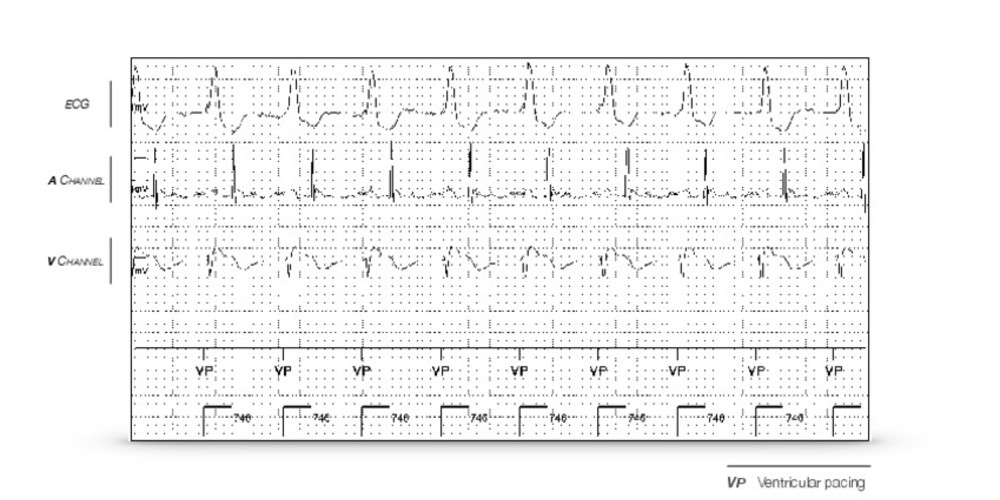
Graph and trace
Programming in VVI mode 80 beats/minute; fixed pacing at 80 beats/minute with no sensing of atrial activity; the 3 possible modes are therefore VVI, VVT or VOO at 80 beats/minute; the 1:1 atrial activity follows ventricular pacing; probable retrograde atrial activation.
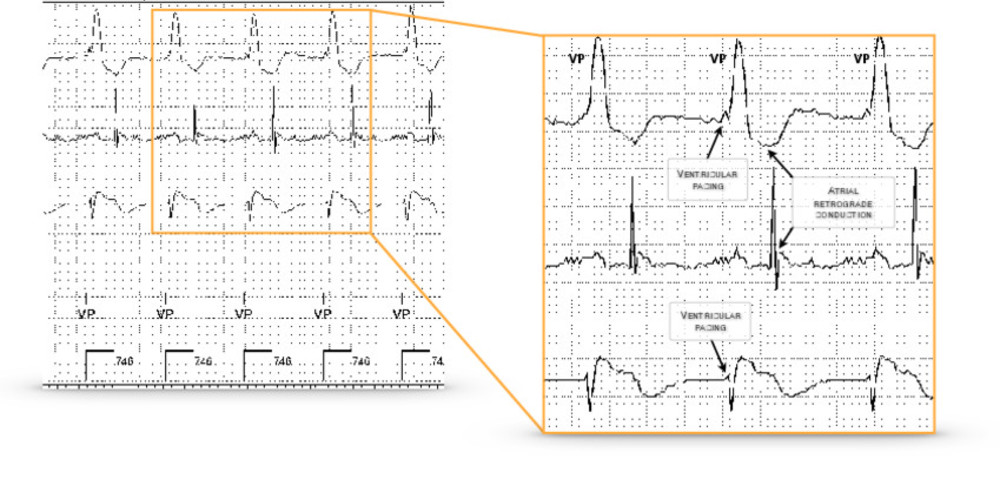
Other articles that may be of interest to you
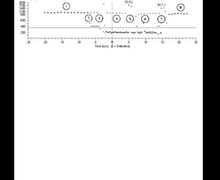
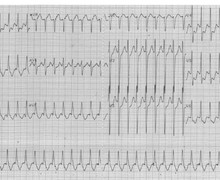
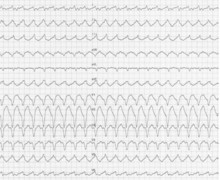

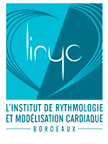


A single-chamber pacemaker operates in VVI mode when only one lead is positioned in the ventricle; the VVI mode can also be programmed in a dual- chamber pacemaker. The VVI mode provides single-chamber ventricular pacing at the programmed pacing rate, unless inhibited by a sensed ventricular event. Sensing only applies to the ventricle.
For this patient, programming of the base rate is essential. Indeed, at 80 beats/minute, the base rate is too high and there is permanent ventricular pacing with inversion of the physiological atrioventricular activation sequence. EGMs show a 1:1 retrograde atrial conduction. Atrial contraction occurs while the atrioventricular valves are closed causing a retrograde flow to the atria, pulmonary veins and vena cava. Pacemaker syndrome results from a complex combination of hemodynamic, neurohumoral and vascular alterations. A sometimes very disabling symptomatology, due to the increase in atrial pressure and venous pressure, can include dyspnea, orthopnea, pulsations in the neck and chest, palpitations, or chest pain.
Conversely, at 50 beats/minute, the minimum rate is lower than the intrinsic rate and the patient is not paced. This sentinel mode allows avoiding unnecessary pacing in non-pacemaker-dependent patients, thereby reducing consumption while avoiding the occurrence of retrograde conduction.